*/
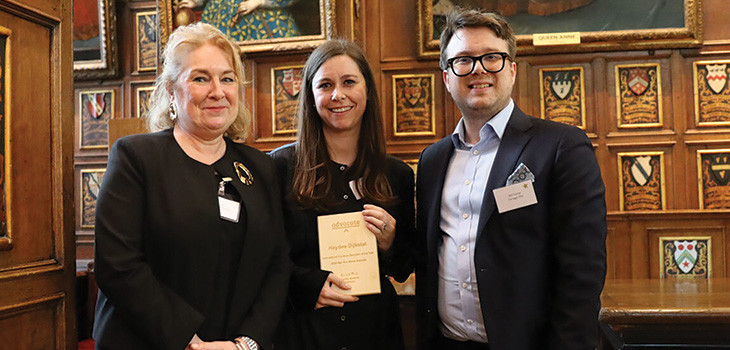
The annual Bar Pro Bono Awards are a unique opportunity in the legal calendar for the Bar to come together to celebrate the remarkable pro bono contribution being made across the profession.
The awards ceremony took place on 8 May 2024 in Middle Temple. This year, over 100 nominations in total were submitted across eight different categories, demonstrating the widespread range of pro bono work taking place across the Bar, from pupils to KCs, through to chambers and cross-Bar initiatives.
The awards were presented by The Lady Chief Justice of England and Wales, Baroness Carr, who drew attention to the impact of pro bono:
‘Every piece of pro bono work matters. It is not just about the landmark cases. A barrister’s involvement in what might be objectively a small case can still be life-changing for the client involved.’
Many congratulations to this year’s winners for their outstanding contributions and our thanks to all those at the Bar who continue to generously volunteer their time and expertise to help those who would otherwise have nowhere else to turn.
Thank you also to LexisNexis for generously being our headline sponsor again this year, and to Middle Temple for hosting the ceremony.
Advocate, the Bar’s pro bono charity
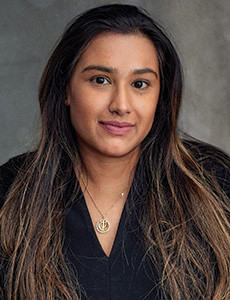
I do a lot of outreach work in making the profession more accessible for disadvantaged communities. I run a legal clinic ensuring that people from disadvantaged backgrounds can receive accessible representation as well as an anti-gang initiative, where I attend schools and provide workshops nationally to help them rethink their aspirations. I co-founded the first-ever Sikh Lawyers Association (SLA) within the legal profession, alongside my colleagues Jaskeerat Singh Gulshan and Simran Kang, and we have held several sold-out events on pupillage and training contracts which are accessible to all regardless of faith or background. I am also a judge in the Young Citizen’s Bar Mock Trials for over 200 schools who are disadvantaged to entering the legal profession, allowing me to help promote access to the Bar.
I began this work around six years ago and draw motivation from my own life experiences. I faced significant adversity growing up. My father went to prison when I was 15 years old and doing my GCSEs. During my A-levels, I was homeless, living on the streets and exposed to gangs. This has given me a unique understanding and empathy towards young people who fall victim to exploitation.
My faith also had a lot to do with me starting to give back to the community. As a Sikh, I see it as my duty to undertake pro bono work in the form of Sewa (selfless service), a core value which is taught and embedded in us by our Gurus. I fit this in during my spare time in the evenings or at weekends. Last year, prior to starting pupillage, I was able to dedicate 30 hours a week to pro bono. I have a fantastic team behind me at the SLA where we share duties, making the work we do possible.
The best and most rewarding aspect by far is making the legal profession more accessible to people from a similar background to myself; ensuring that they are not faced with the struggles I was and that they can receive the guidance they need. The more intellectually satisfying aspect is seeing some of the people I have mentored from disadvantaged backgrounds securing pupillage and a place at the Bar. The most challenging aspect has been trying to engage other legal professionals to make it accessible for disadvantaged individuals when referring cases to them from the legal clinic.
To anyone considering taking on volunteer work, I would say go for it! It will be the best decision you have made. My tip would be to engage in work which you have a real passion for. There are many different ways you can undertake pro bono, you just have to find the right fit for you. Do not underestimate the power of pro bono and how rewarding it is and feels once you do it.
Legal aid cuts and eligibility play a part in why volunteering is so important. If an individual, for example, is not able to seek representation in a criminal matter because they do not qualify for legal aid and they cannot afford to pay privately, the only option they are left with is to represent themselves. All legal professionals will know what a huge issue that can cause for the criminal justice system and the danger of litigants-in-person cross-examining vulnerable witnesses in serious cases.
As a Sikh and the first female Sikh to have won the Young Pro Bono Barrister of the Year award, it is an incredibly proud moment as doing Sewa is our duty. I feel really blessed to have been given by Waheguru ji (God) the skills, courage and strength to do the work I have. My late Grandfather (Nana ji) taught me the importance of Sewa and giving back to those in need. In my view, it is the best award in my career that I could have been given.
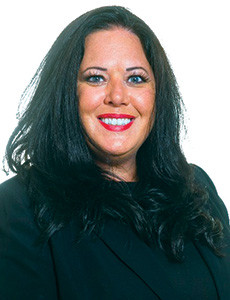
The demise of legal aid for private law family cases – and the subsequent tightening up of the means criteria for those victim-survivors of domestic abuse who remain eligible on a merits basis – has resulted in huge strain on the family justice system. It was perhaps predictable that family lawyers would be the ones required to prop it up. All of that said, undertaking pro bono work is incredibly satisfying. Your involvement, however fleeting in some cases, results in clients getting a better outcome than they would if navigating the system alone.
At one end of my pro bono practice, volunteering at a free legal clinic involves short appointments, signposting clients to resources that are available online and giving them basic advice about how to start proceedings and where to find the right documents. At the other end, it involves taking on huge pieces of litigation, which requires an investment of many hours of work managing the case – overseeing the production of court documents, routine correspondence, listing and bundles as well as representing clients at hearings and supporting them through the process.
I am very lucky: my area of practice (matrimonial finance) pays well, and I can afford to create space in my diary to accommodate pro bono work. The real heroes are the ones who sacrifice sleep and time with their families to juggle pro bono work during evenings and weekends. Without them, the system would cease to function.
Even then, fitting in pro bono work can be a struggle. The Advocate schemes which allow practitioners to collaborate on cases and mentor juniors are brilliant. I have only come to those schemes relatively recently, and it’s had a real effect on my pro bono practice. It allows me to get involved in more cases because the work can be shared out and it gives junior practitioners a wonderful opportunity to run a case, knowing they have a senior member of the profession on hand to give advice when necessary. It also gives junior practitioners the chance to undertake work in new and different practice areas, when they might struggle otherwise to be instructed as a ‘new face’.
For me, the most rewarding aspect is knowing that you have made a difference. That is what we came into the job to do. But pro bono work is not without its challenges. You are often wearing a number of ‘hats’: administrator, advocate, counsellor. It helps to set clear boundaries about the volume and timing of communications, although it’s true to say that for most practitioners I know who undertake pro bono work, once they’re signed up, they’re ‘all in’.
If you’re hesitant about signing up to Advocate, speak to other members of chambers who undertake pro bono work (or your chambers Advocate Pro Bono Champion if you have one). You can speak to the Advocate team, who would be more than happy to talk you through the process or come along to any of the workshops put on by Advocate on Circuit. Most practitioners who undertake pro bono work are fairly evangelical about it, so expect to be converted. I would also definitely recommend signing up for the mentoring scheme then scanning the lists to find a case for which you think you’d be a good fit. The Advocate caseworkers will often have an idea of which senior practitioners are likely to assist and can match you with a willing mentor. If you’re a senior member of the profession coming late to pro bono work, consider signing up as a mentor. Knowing you are on the end of the phone might be all the junior needs.
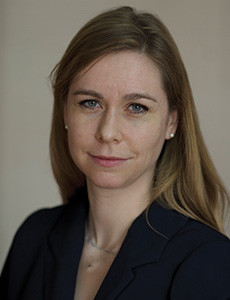
My practice focuses on international criminal and human rights law, and the majority of my work involves representing victims of atrocity crimes and abuses.
With this work, I help victims and their families seek justice and accountability for the harm they have suffered, or aim to protect their rights and wellbeing if at risk of continued harm. It means often working with individuals and groups who have suffered a range of harms –who have lost loved ones, been displaced from their homes, lost their livelihoods, or have been subjected to physical and psychological harm. It includes those who might be vulnerable, and who might not be able to access legal representation without pro bono assistance. It highlights the importance of supporting and contributing to the principle that justice is for everyone and accessible to all.
This is an area of law with no options for legal aid, and with many victims relying on organisations and NGOs to support any legal steps. The reality is that we all must make a living, but I believe that making space to take on pro bono work as a percentage of my diary is important and meaningful.
My recent pro bono work has largely focused on supporting British nationals arbitrarily detained or held hostage abroad, and their families. This work utilises international law to seek release of the detained person and protection of their rights, but also involves attending to the interests of family members, who also have fundamental rights to safeguard. Other pro bono work has involved the legal representation of Ukrainian victims of attacks on their art and museums, which has involved recognition of not only the physical destruction of museums but also how these attacks go to the heart of Ukraine’s cultural heritage, identity and history. It has also involved participation in fact-finding missions in Guatemala and Nepal to examine human rights issues such as the rights of indigenous peoples to their land, protection of human rights defenders and meaningful access to transitional justice mechanisms for conflict related victims.
It can be challenging work that requires patience and sensitivity, and commitment to seeing the case through. In taking on this work, it is imperative that it is treated no differently than any other work in my diary and afforded the same attention and effort. With all that goes into this work, I’ve been grateful that my chambers and colleagues have been supportive and recognised the value of this work.
Taking on pro bono work has many benefits too. It is a great way to diversify one’s practice, get involved in new areas of law, contribute to the development of the law, or get practical experience. It can also be rewarding when seeing the result of these efforts. Among the detention cases in my practice, it was moving and a privilege to see families reunited. However, it is not just results that bring meaning and worth, but also the process. Here, I have heard from victims who view their participation and agency in the legal process as a form of reparation and part of the healing process. It affirms the impact and importance of this work, and is a reminder that every bit of pro bono work helps someone who might otherwise not be afforded the chance to seek justice, legal protection or a remedy.
I am grateful for this award and am honoured to be recognised for my work. I was extremely impressed by all those who were nominated for the Bar Pro Bono Awards, and glad to see such a strong commitment to pro bono work.
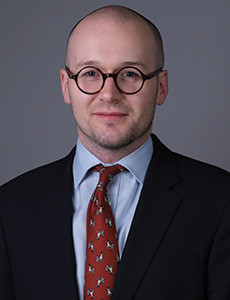
Alongside a busy criminal legal aid practice, I have undertaken a significant amount of pro bono work through Advocate. Since my second six, I have volunteered to assist in a number of areas of law, including the proceeds of crime, inquests, quasi-criminal proceedings, regulatory and professional discipline, civil fraud and general crime.
Through Advocate, I worked on a case where I represented a single mother who was a courier of Class A drugs. As she had pleaded in the Magistrates’ Court, she was ineligible for legal aid without paying contributions she simply could not afford. I represented her at two separate hearings, leading to the imposition of a suspended sentence where the starting point was four and a half years’ custody.
I also assisted a third-party wife in confiscation proceeds concerning the matrimonial home. The case raised several issues of gender discrimination within the tainted gift provisions, where the wife had no knowledge of the offending and contributed to her share in the equity through domestic labour. I prepared the legal submissions and was able to negotiate a substantial settlement with the prosecution, enabling her to start a-fresh.
Among other ongoing matters, I am currently assisting on a pro bono case helping a victim of fraud by overseas actors who has been able to trace the proceeds into specific cryptocurrency wallets. I am also assisting with an appeal by way of case stated in the Divisional Court concerning the Magistrates’ Court’s powers to re-open decisions under its civil jurisdiction.
I am a great supporter of Advocate and its aims and incorporating pro bono work into my practice. For me, it has been both an immensely rewarding and challenging part of my career, allowing me to pursue issues of interest, ensure effective representation and broaden my practice.

The annual Bar Pro Bono Awards are a unique opportunity in the legal calendar for the Bar to come together to celebrate the remarkable pro bono contribution being made across the profession.
The awards ceremony took place on 8 May 2024 in Middle Temple. This year, over 100 nominations in total were submitted across eight different categories, demonstrating the widespread range of pro bono work taking place across the Bar, from pupils to KCs, through to chambers and cross-Bar initiatives.
The awards were presented by The Lady Chief Justice of England and Wales, Baroness Carr, who drew attention to the impact of pro bono:
‘Every piece of pro bono work matters. It is not just about the landmark cases. A barrister’s involvement in what might be objectively a small case can still be life-changing for the client involved.’
Many congratulations to this year’s winners for their outstanding contributions and our thanks to all those at the Bar who continue to generously volunteer their time and expertise to help those who would otherwise have nowhere else to turn.
Thank you also to LexisNexis for generously being our headline sponsor again this year, and to Middle Temple for hosting the ceremony.
Advocate, the Bar’s pro bono charity

I do a lot of outreach work in making the profession more accessible for disadvantaged communities. I run a legal clinic ensuring that people from disadvantaged backgrounds can receive accessible representation as well as an anti-gang initiative, where I attend schools and provide workshops nationally to help them rethink their aspirations. I co-founded the first-ever Sikh Lawyers Association (SLA) within the legal profession, alongside my colleagues Jaskeerat Singh Gulshan and Simran Kang, and we have held several sold-out events on pupillage and training contracts which are accessible to all regardless of faith or background. I am also a judge in the Young Citizen’s Bar Mock Trials for over 200 schools who are disadvantaged to entering the legal profession, allowing me to help promote access to the Bar.
I began this work around six years ago and draw motivation from my own life experiences. I faced significant adversity growing up. My father went to prison when I was 15 years old and doing my GCSEs. During my A-levels, I was homeless, living on the streets and exposed to gangs. This has given me a unique understanding and empathy towards young people who fall victim to exploitation.
My faith also had a lot to do with me starting to give back to the community. As a Sikh, I see it as my duty to undertake pro bono work in the form of Sewa (selfless service), a core value which is taught and embedded in us by our Gurus. I fit this in during my spare time in the evenings or at weekends. Last year, prior to starting pupillage, I was able to dedicate 30 hours a week to pro bono. I have a fantastic team behind me at the SLA where we share duties, making the work we do possible.
The best and most rewarding aspect by far is making the legal profession more accessible to people from a similar background to myself; ensuring that they are not faced with the struggles I was and that they can receive the guidance they need. The more intellectually satisfying aspect is seeing some of the people I have mentored from disadvantaged backgrounds securing pupillage and a place at the Bar. The most challenging aspect has been trying to engage other legal professionals to make it accessible for disadvantaged individuals when referring cases to them from the legal clinic.
To anyone considering taking on volunteer work, I would say go for it! It will be the best decision you have made. My tip would be to engage in work which you have a real passion for. There are many different ways you can undertake pro bono, you just have to find the right fit for you. Do not underestimate the power of pro bono and how rewarding it is and feels once you do it.
Legal aid cuts and eligibility play a part in why volunteering is so important. If an individual, for example, is not able to seek representation in a criminal matter because they do not qualify for legal aid and they cannot afford to pay privately, the only option they are left with is to represent themselves. All legal professionals will know what a huge issue that can cause for the criminal justice system and the danger of litigants-in-person cross-examining vulnerable witnesses in serious cases.
As a Sikh and the first female Sikh to have won the Young Pro Bono Barrister of the Year award, it is an incredibly proud moment as doing Sewa is our duty. I feel really blessed to have been given by Waheguru ji (God) the skills, courage and strength to do the work I have. My late Grandfather (Nana ji) taught me the importance of Sewa and giving back to those in need. In my view, it is the best award in my career that I could have been given.

The demise of legal aid for private law family cases – and the subsequent tightening up of the means criteria for those victim-survivors of domestic abuse who remain eligible on a merits basis – has resulted in huge strain on the family justice system. It was perhaps predictable that family lawyers would be the ones required to prop it up. All of that said, undertaking pro bono work is incredibly satisfying. Your involvement, however fleeting in some cases, results in clients getting a better outcome than they would if navigating the system alone.
At one end of my pro bono practice, volunteering at a free legal clinic involves short appointments, signposting clients to resources that are available online and giving them basic advice about how to start proceedings and where to find the right documents. At the other end, it involves taking on huge pieces of litigation, which requires an investment of many hours of work managing the case – overseeing the production of court documents, routine correspondence, listing and bundles as well as representing clients at hearings and supporting them through the process.
I am very lucky: my area of practice (matrimonial finance) pays well, and I can afford to create space in my diary to accommodate pro bono work. The real heroes are the ones who sacrifice sleep and time with their families to juggle pro bono work during evenings and weekends. Without them, the system would cease to function.
Even then, fitting in pro bono work can be a struggle. The Advocate schemes which allow practitioners to collaborate on cases and mentor juniors are brilliant. I have only come to those schemes relatively recently, and it’s had a real effect on my pro bono practice. It allows me to get involved in more cases because the work can be shared out and it gives junior practitioners a wonderful opportunity to run a case, knowing they have a senior member of the profession on hand to give advice when necessary. It also gives junior practitioners the chance to undertake work in new and different practice areas, when they might struggle otherwise to be instructed as a ‘new face’.
For me, the most rewarding aspect is knowing that you have made a difference. That is what we came into the job to do. But pro bono work is not without its challenges. You are often wearing a number of ‘hats’: administrator, advocate, counsellor. It helps to set clear boundaries about the volume and timing of communications, although it’s true to say that for most practitioners I know who undertake pro bono work, once they’re signed up, they’re ‘all in’.
If you’re hesitant about signing up to Advocate, speak to other members of chambers who undertake pro bono work (or your chambers Advocate Pro Bono Champion if you have one). You can speak to the Advocate team, who would be more than happy to talk you through the process or come along to any of the workshops put on by Advocate on Circuit. Most practitioners who undertake pro bono work are fairly evangelical about it, so expect to be converted. I would also definitely recommend signing up for the mentoring scheme then scanning the lists to find a case for which you think you’d be a good fit. The Advocate caseworkers will often have an idea of which senior practitioners are likely to assist and can match you with a willing mentor. If you’re a senior member of the profession coming late to pro bono work, consider signing up as a mentor. Knowing you are on the end of the phone might be all the junior needs.

My practice focuses on international criminal and human rights law, and the majority of my work involves representing victims of atrocity crimes and abuses.
With this work, I help victims and their families seek justice and accountability for the harm they have suffered, or aim to protect their rights and wellbeing if at risk of continued harm. It means often working with individuals and groups who have suffered a range of harms –who have lost loved ones, been displaced from their homes, lost their livelihoods, or have been subjected to physical and psychological harm. It includes those who might be vulnerable, and who might not be able to access legal representation without pro bono assistance. It highlights the importance of supporting and contributing to the principle that justice is for everyone and accessible to all.
This is an area of law with no options for legal aid, and with many victims relying on organisations and NGOs to support any legal steps. The reality is that we all must make a living, but I believe that making space to take on pro bono work as a percentage of my diary is important and meaningful.
My recent pro bono work has largely focused on supporting British nationals arbitrarily detained or held hostage abroad, and their families. This work utilises international law to seek release of the detained person and protection of their rights, but also involves attending to the interests of family members, who also have fundamental rights to safeguard. Other pro bono work has involved the legal representation of Ukrainian victims of attacks on their art and museums, which has involved recognition of not only the physical destruction of museums but also how these attacks go to the heart of Ukraine’s cultural heritage, identity and history. It has also involved participation in fact-finding missions in Guatemala and Nepal to examine human rights issues such as the rights of indigenous peoples to their land, protection of human rights defenders and meaningful access to transitional justice mechanisms for conflict related victims.
It can be challenging work that requires patience and sensitivity, and commitment to seeing the case through. In taking on this work, it is imperative that it is treated no differently than any other work in my diary and afforded the same attention and effort. With all that goes into this work, I’ve been grateful that my chambers and colleagues have been supportive and recognised the value of this work.
Taking on pro bono work has many benefits too. It is a great way to diversify one’s practice, get involved in new areas of law, contribute to the development of the law, or get practical experience. It can also be rewarding when seeing the result of these efforts. Among the detention cases in my practice, it was moving and a privilege to see families reunited. However, it is not just results that bring meaning and worth, but also the process. Here, I have heard from victims who view their participation and agency in the legal process as a form of reparation and part of the healing process. It affirms the impact and importance of this work, and is a reminder that every bit of pro bono work helps someone who might otherwise not be afforded the chance to seek justice, legal protection or a remedy.
I am grateful for this award and am honoured to be recognised for my work. I was extremely impressed by all those who were nominated for the Bar Pro Bono Awards, and glad to see such a strong commitment to pro bono work.

Alongside a busy criminal legal aid practice, I have undertaken a significant amount of pro bono work through Advocate. Since my second six, I have volunteered to assist in a number of areas of law, including the proceeds of crime, inquests, quasi-criminal proceedings, regulatory and professional discipline, civil fraud and general crime.
Through Advocate, I worked on a case where I represented a single mother who was a courier of Class A drugs. As she had pleaded in the Magistrates’ Court, she was ineligible for legal aid without paying contributions she simply could not afford. I represented her at two separate hearings, leading to the imposition of a suspended sentence where the starting point was four and a half years’ custody.
I also assisted a third-party wife in confiscation proceeds concerning the matrimonial home. The case raised several issues of gender discrimination within the tainted gift provisions, where the wife had no knowledge of the offending and contributed to her share in the equity through domestic labour. I prepared the legal submissions and was able to negotiate a substantial settlement with the prosecution, enabling her to start a-fresh.
Among other ongoing matters, I am currently assisting on a pro bono case helping a victim of fraud by overseas actors who has been able to trace the proceeds into specific cryptocurrency wallets. I am also assisting with an appeal by way of case stated in the Divisional Court concerning the Magistrates’ Court’s powers to re-open decisions under its civil jurisdiction.
I am a great supporter of Advocate and its aims and incorporating pro bono work into my practice. For me, it has been both an immensely rewarding and challenging part of my career, allowing me to pursue issues of interest, ensure effective representation and broaden my practice.


Now is the time to tackle inappropriate behaviour at the Bar as well as extend our reach and collaboration with organisations and individuals at home and abroad
A comparison – Dan Monaghan, Head of DWF Chambers, invites two viewpoints
And if not, why not? asks Louise Crush of Westgate Wealth Management
Marie Law, Head of Toxicology at AlphaBiolabs, discusses the many benefits of oral fluid drug testing for child welfare and protection matters
To mark International Women’s Day, Louise Crush of Westgate Wealth Management looks at how financial planning can help bridge the gap
Casey Randall of AlphaBiolabs answers some of the most common questions regarding relationship DNA testing for court
Maria Scotland and Niamh Wilkie report from the Bar Council’s 2024 visit to the United Arab Emirates exploring practice development opportunities for the England and Wales family Bar
Marking Neurodiversity Week 2025, an anonymous barrister shares the revelations and emotions from a mid-career diagnosis with a view to encouraging others to find out more
David Wurtzel analyses the outcome of the 2024 silk competition and how it compares with previous years, revealing some striking trends and home truths for the profession
Save for some high-flyers and those who can become commercial arbitrators, it is generally a question of all or nothing but that does not mean moving from hero to zero, says Andrew Hillier